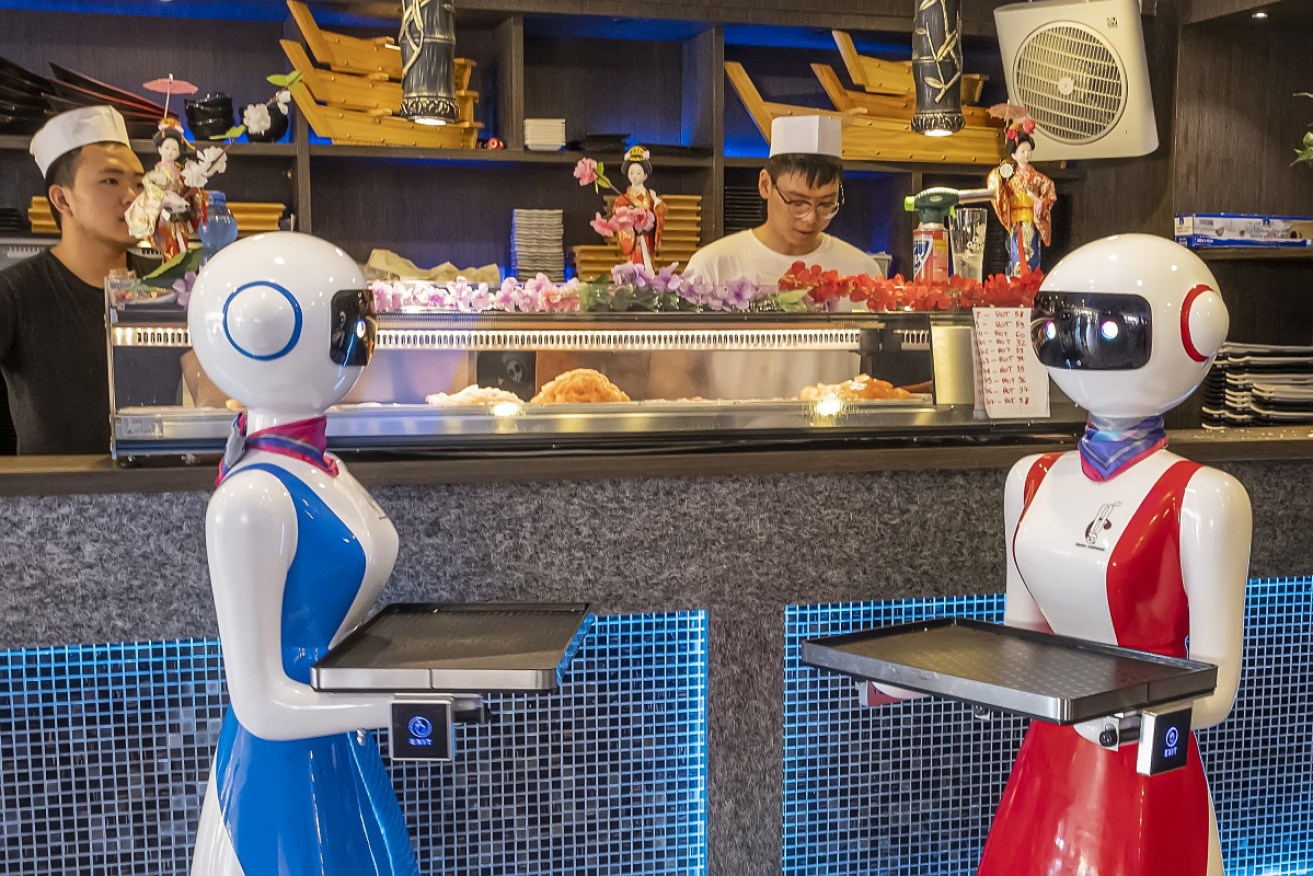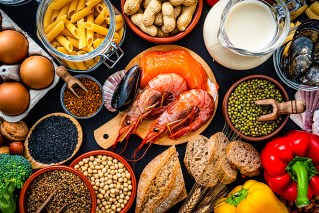From robot waiters to plant-based meat, these are the food trends being served up in 2020


Hi-tech food is on the menu in 2020. Photo: Getty
From robot waiters to plant-based burgers that bleed like meat, 2020 is tipped to be a year of hi-tech food trends.
The Future Grazing report released by hospitality financier SilverChef on Tuesday offers a glimpse of some of the innovations in store.
Hi-tech dining
The report found that one in three Australian hospitality businesses had introduced some form of automation over the past year.
This includes interactive menus that enable diners to see a video of each menu item on a tablet or computer screen, social media reviews linked to each meal, and virtual reality headsets that allow customers to ‘see’ the meals on the menu in 3D before ordering.  Food Industry Foresight director Rod Fowler said low margins and the high cost of labour was accelerating automation in the hospitality industry.
Food Industry Foresight director Rod Fowler said low margins and the high cost of labour was accelerating automation in the hospitality industry.
“Because of these pressures, the implementation of new cost saving technology – think automation, robotics, AI tools and ordering systems – is likely to be adopted sooner,” he said.
Robots will play a key role in automation by taking over menial tasks and freeing up human staff to focus on customer service and other “high-value interactions”, Mr Fowler predicted.
“New generation robots or cobots (cooperative robots) are designed to work alongside humans safely and can be rented or leased instead of purchased,” he said.
“Combining cobots with existing standard commercial kitchen equipment will achieve significant cost savings.”
One example of this is the Niska Robotic Ice Cream Bar in Melbourne, which is run solely by robots.
The unstoppable rise of plant-based proteins
From vegetarian burgers that bleed like real meat to KFC’s new vegan chicken sandwich, more people than ever are expected to consume plant-based meat substitutes in 2020.
Plant-based protein isn’t just for dreadlocked vegans, either, with a growing number of people embracing ‘flexitarianism’.
A flexitarian eats mostly a vegan or vegetarian diet, and focuses on replacing meat-based proteins with things like eggs and beans. As the name suggests, it’s flexible, and can include meat and fish.
Households with a combined income of more than $100,000 were most likely to consume plant-based foods (61 per cent), followed by those on $50,000 to $99,000 (29 per cent) and under $50,000 (22 per cent), the report found.
Not merely a matter of taste, many people are turning to plant-based protein as an environmentally friendly and cost-effective alternative to meat.
Ethical treatment of animals has also become highly valued, with more than three quarters (78 per cent) of Australians saying that whether a restaurant or cafe supports animal welfare influences their purchase decisions.
Veganism is also a growing trend in Australia and around the world.
“For example, the percentage of Italians who identified as vegan nearly doubled from 2016 to 2018, and the number of vegans in the UK quadrupled between 2014 and 2018,” LaTrobe University psychology lecturer Matthew Ruby and University of Technology Sydney sustainability researcher Tani Khara wrote.

Source: The Conversation
In 2017, the global plant protein market was valued at $15.65 billion and this number is predicted to increase to $24.3 billion by 2025.”
In Australia, one in four people are eating more plant-based meals now compared to a year ago, the Future Grazing report found, with the equivalent of 5.5 million people agreeing that access to various menu options such as vegan, vegetarian, gluten-free, dairy-free and paleo are important.
In the future we can expect to see and hear more from those who choose not to consume animal products,” the researchers said.
Lab-grown meats next on the menu
‘Lab-grown’ meats are also touted as a future competitor to both farmed meat and plant-based proteins.
The amount of global investment in plant-based and lab-grown meats is “probably the largest change in the history of the food industry”, Mr Fowler said.
The race is on to provide healthy tasty meat substitutes that are attractive to the entire population, especially meat lovers.”
The lab-grown meat movement is driven by consumers “wanting healthier, more sustainable food sources that are also environmentally sound,” Mr Fowler said, with one company already claiming to be able to produce a ton of meat every 14 weeks.
“That is a huge saving when it comes to precious natural resources such as land and water,” he said.
Customers ditch Deliveroo, UberEats
 Online food delivery apps including UberEats, Deliveroo, and Door Dash have made it possible to have restaurant-quality food delivered to your home, but a backlash has been brewing.
Online food delivery apps including UberEats, Deliveroo, and Door Dash have made it possible to have restaurant-quality food delivered to your home, but a backlash has been brewing.
A growing number of diners are ditching apps in favour of supporting their local cafes and restaurants, Mr Fowler said, a trend that is expected to accelerate in 2020 .
- Read more: Food fight: UberEats, Deliveroo accused of ‘Sopranos-style shakedown’ as DoorDash arrives
“We have certainly seen a slowing of the growth of online ordering systems,” he said.
“The negative sentiment against home delivery services from restaurants who cop the backlash when food arrives late, or cold, or doesn’t represent the way it is presented in the restaurant, is growing.
The novelty is starting to wear off so consumers are falling back to normal judgement values around quality and price.”








